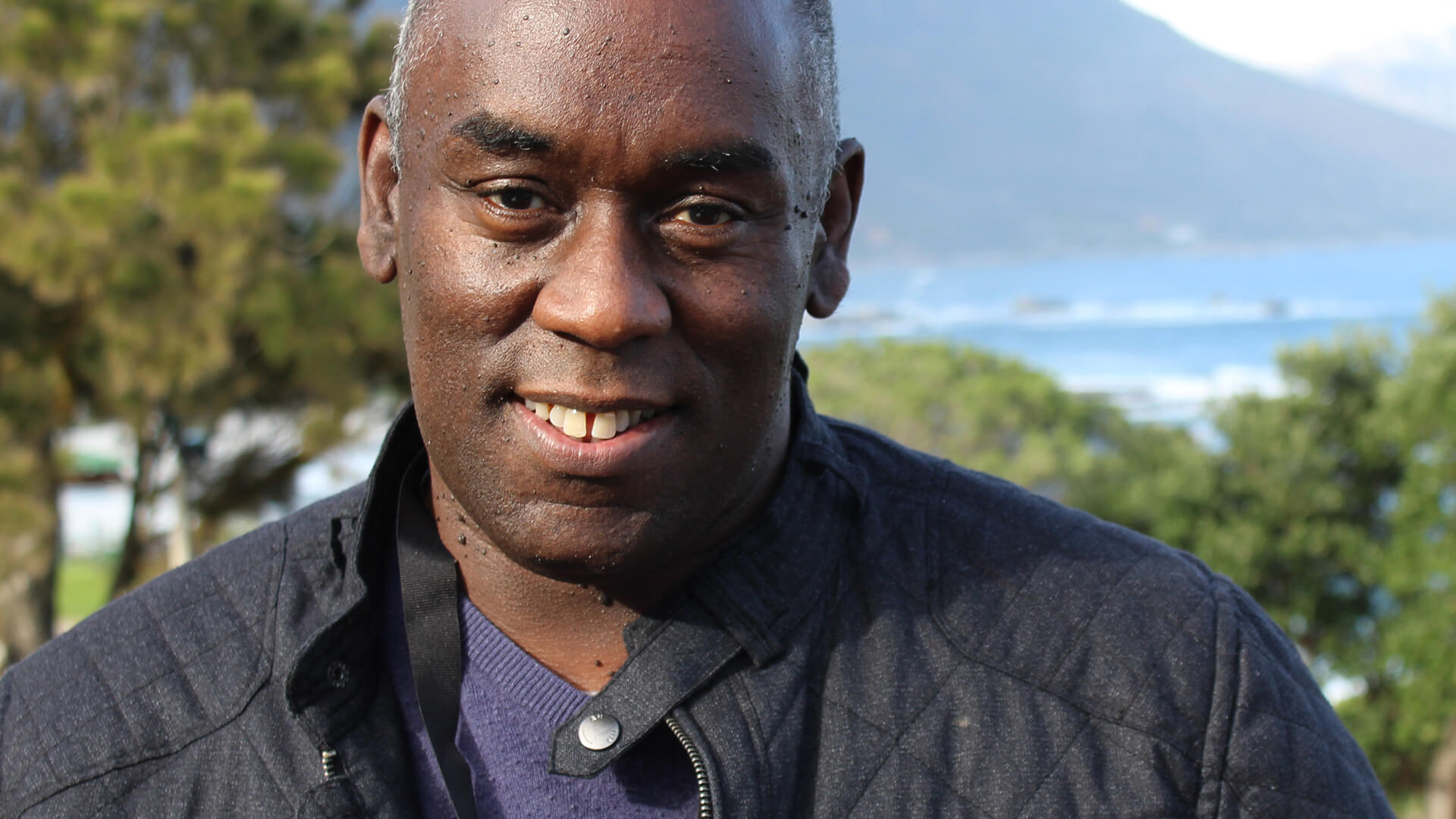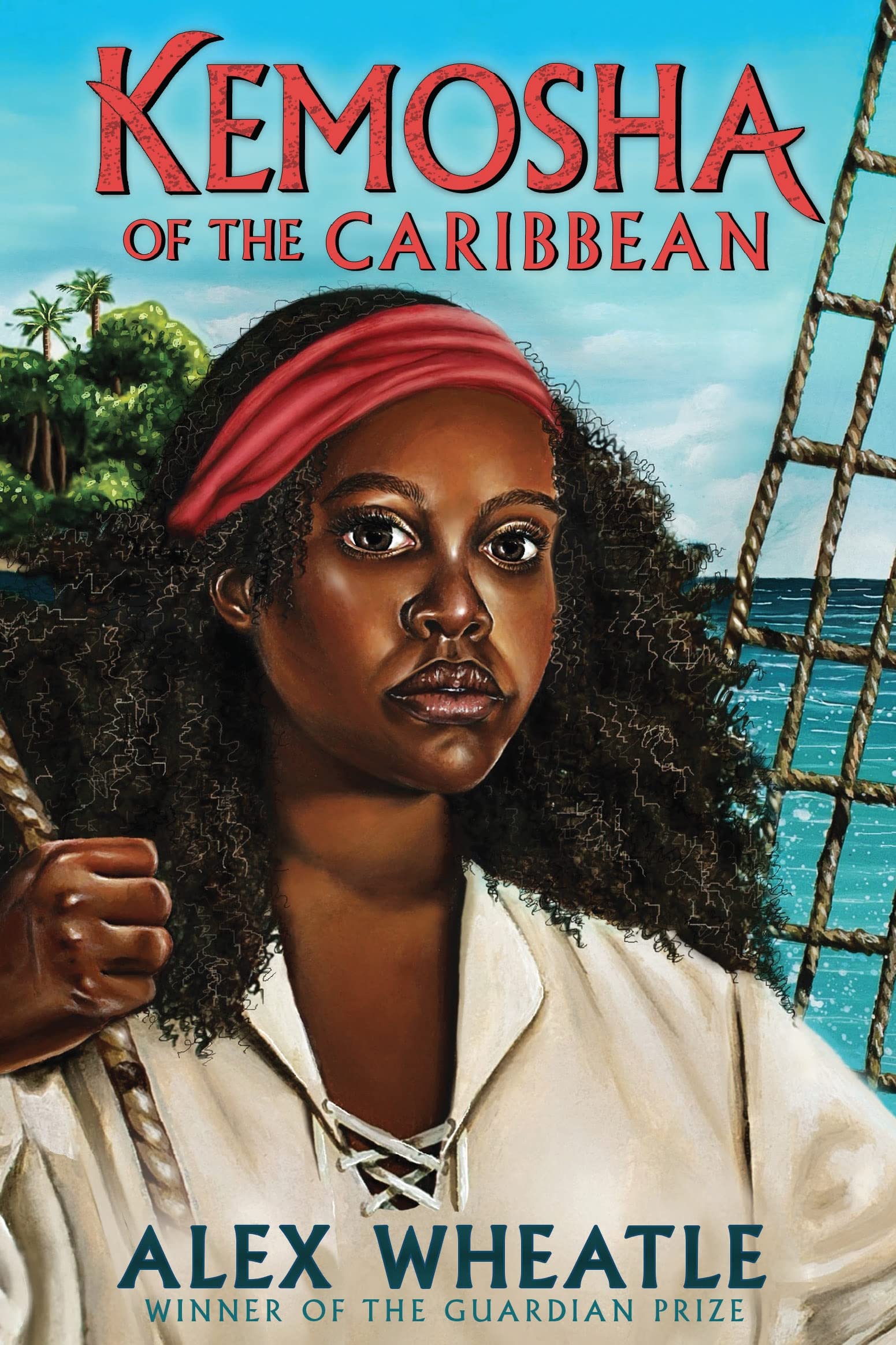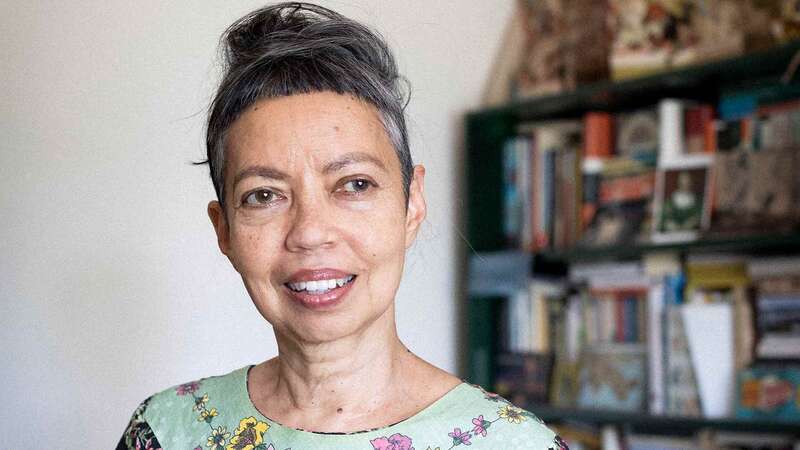You are viewing your 1 free article this month. Login to read more articles.
Alex Wheatle in conversation about pirates, slavery and showing people the foundations of empire
 Charlotte Eyre
Charlotte EyreCharlotte Eyre is the former children’s editor of The Bookseller magazine, and current children's books previewer. She has programmed ...more
The Caribbean continues to inspire Alex Wheatle, who returns to this setting in his latest novel, which is about an irrepressible female pirate

Charlotte Eyre is the former children’s editor of The Bookseller magazine, and current children's books previewer. She has programmed ...more
Following the success of his first historical YA novel, Cane Warriors, Alex Wheatle is returning to the Caribbean for a pirate adventure with an indomitable heroine at its heart.
Kemosha of the Caribbean (Andersen Press) is set in 1668 and is about a young girl, no older than 14 or 15, who is a slave on a plantation in the ownership of Captain Tate. When a malevolent man called Powell buys Kemosha and takes her to Port Royal to be a prostitute, Kemosha stabs the first man who pays to sleep with her. She flees and finds herself under the protection of Ravenhide, a barrel maker with a mysterious past. He teaches her how to use a sword and Kemosha then wins her freedom by challenging Powell to a duel, setting her up for a series of piratical adventures with Captain Morgan, a real historical figure who worked his way up from privateer to plantation owner, and eventually Lieutenant Governor of Jamaica.
The novel is due for release next February but Wheatle had his first inspiration a long time ago: after growing up in the UK in care, he was finally reunited with his father and together they took a trip to Port Royal, which was, he says, the main pirate hub of the Caribbean. There he learned about the real-life female pirates of the 17th century, such as Anne Bonny, and, given the fact he had wanted to build a narrative around a female protagonist since the release of Cane Warriors, he created Kemosha.
We need to make people understand how enmeshed slavery was with the economic journey of Western societies
Kemosha’s many adventures are thrilling and exciting: she learns to fight; falls in love with Isabella, another young woman who is protected by Ravenhide; and witnesses a raid on the Spanish Main (the parts of the Spanish Empire that were on the mainland of the Americas and had coastlines on the Caribbean Sea or
Gulf of Mexico). Wheatle said he wanted to write the book in the vein of Treasure Island or Huckleberry Finn—the adventure stories he read as a child. He admires the heroic aspects of piracy, describing pirates as the “socialists” of their day. “If you were in the British Navy, everything you gained from that voyage would go to the King or Queen. The pirates said ,‘No, we want some of this.’ That idealist nature appealed to me.”
An eye for an eye
Yet he doesn’t shy away from the brutal nature of life in 17th-century Port Royal. His storytelling, as in Cane Warriors, can be visceral, and it is often the minor characters—such as a slave woman whose “skin on her left cheek still hadn’t grown back”, or Lillet, a disabled prostitute—who bring home the reality of how many people lived (or rather, existed) at the time.
Kemosha herself wrestles with the violence she sees around her. She will wound and even kill when under threat but when she discovers a beach full of corpses during a raid, she is “shaken to her core”, says Wheatle.
Slavery is obviously a key part of the narrative, and Kemosha is driven by the desire to free her loved ones from Tate’s plantation. Wheatle says the economic drive behind slavery is not discussed enough with young people. “We need to make people understand how enmeshed slavery was with the economic journey of Western societies, not just the act itself,” he says.
“I hope young people understand why people were transported to the Caribbean, why they were seen as cash profit,” he adds. “Usually the lords of the land controlled everything and the money went back into their coffers—to build their mansions. It is important that kids today read this side of the narrative. For so long they have been fed books like William Hague’s about William Wilberforce. He painted him as the hero who ended slavery. That’s not the case. Slavery ended because of people like Takcy [who featured in Cane Warriors] and Kemosha, who basically challenged it. In the end, the British couldn’t afford to keep it going.”
Wheatle is now one of the most respected authors working in UK YA, not only because of his novels but also as a result of his dedication to inspiring young people who, like him, might have had a difficult upbringing, and last year his youth was the subject of the fourth instalment of Steve McQueen’s Small Axe series. Several months on, Wheatle’s overwhelming feeling about the experience is one of pride but also relief, because he was never previously sure who knew about his life story and who didn’t.
You don’t have to go the normal route to realise your dream; we are all different
I remind him that on a previous occasion when we spoke, I told him how admired he is as an author and as a person, and he said: “I’m not perfect.”
“My wife and kids would tell you [that I’m not perfect], my friends would tell you that too,” he says. “Sometimes in my quiet moments I get depressed, like anyone else… You need space to process stuff, no matter how old you get. The stuff from when I was a kid or a teenager, sometimes that needs work.” Ultimately, he hopes his story will inspire young people, in the creative industries and beyond. “You don’t have to go the normal route to realise your dream; we are all different.”
And as for Kemosha, what happens when the story ends? In the closing chapters of the novel, she manages to free her loved ones and secure a boat to sail away to the deep blue sea, but she, as well as the reader, are conscious of the fact there are still men that want her dead. Wheatle says she will “go on more adventures”, although whether that will be in book form is unclear.
On the horizon
Wheatle is well established in YA now and he is currently working on a Crongton Knights sequel, but wants to branch out into other areas, too. He hopes to write about music and is thinking about doing a memoir, matching certain musical tracks with episodes from his life. He is a big cricket fan, so is tempted to write something about the sport, and would like to write another Welton Blake novel. The Humiliations of Welton Blake, published by Barrington Stoke, was his first middle-grade title and his first laugh-out-loud book.
He has moved away from London and is enjoying the peace and quiet of life outside the capital, but still gets up at five or six o’clock in the morning to write, something he used to do as a teenager in Brixton. He is a fast writer, he says. “Once I’ve got the first two or three chapters out of the way, I am fast. I work really hard on the first few chapters and once I’m satisfied I pick up steam and [the work] flows along.”









